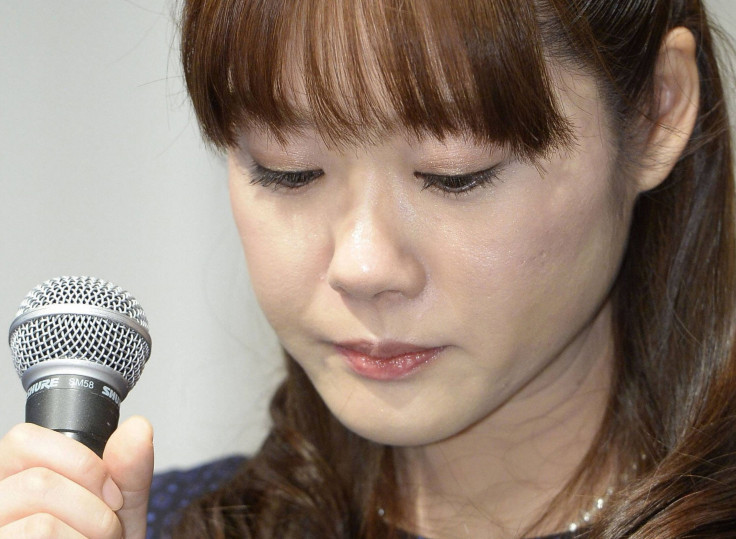Haruko Obokata, Japanese Researcher Accused Of ‘Falsifying’ Stem Cell Research, Stands By Her Discovery

The now-famous Japanese researcher who has been accused of falsifying stem cell research, Haruko Obokata, continues to defend her work and hopes it will still be helpful in the scientific world, she announced at a news conference Wednesday.
Amid widespread skepticism in the scientific community after RIKEN Institute found manipulated images of DNA fragments used in the paper, Obokata claimed that she may have made some mistakes but that the overall message of the research was still legitimate.
“It can definitely be explained how the mistakes happened,” Obokata said at the news conference, according to Fox News. “More than anything, the experiments properly took place. As the data actually exists, I want to clarify that I did not create these papers with ill intent.”
Obokata, a fashionable 30-year-old scientist who made a name for herself in a niche often dominated by older men, authored a paper published in the journal Nature that outlined how blood cells dipped in acid could become pluripotent, and essentially turn into stem cells. The method described in the study, known as Stimulus-triggered Acquisition of Pluripotency (STAP) cells, was hailed as “ground-breaking” in stem cell research and would theoretically allow scientists to grow cells and tissues far more easily in the lab.
Obokata had been a sensation in the scientific world since a young age. She had been accepted into the science department at Tokyo’s Waseda University and had also studied at Harvard University, then asked to stay longer due to her impressive research. She later started her stem cell research at RIKEN, which is an institute largely funded by Japan's government.
However, no other lab was able to recreate the results of her STAP study, and soon scientists grew skeptical due to inconsistencies in the work. RIKEN ordered an investigation into the research, discovering that the report “amounts to phony research or fabrication,” and that “the manipulation was used to improve the appearance of the results.”
Despite growing evidence that shows Obokata and her team had tampered with the results, she still believes her research is meaningful. “If I have a future as a researcher, I want to help develop these STAP cells to the point that they are usable in their own right and useful to someone,” she said, according to FOX News.
At the news conference, Obokata was asked if she felt betrayed by RIKEN and the scientific community. “I believe I should not have that feeling,” she responded.



























